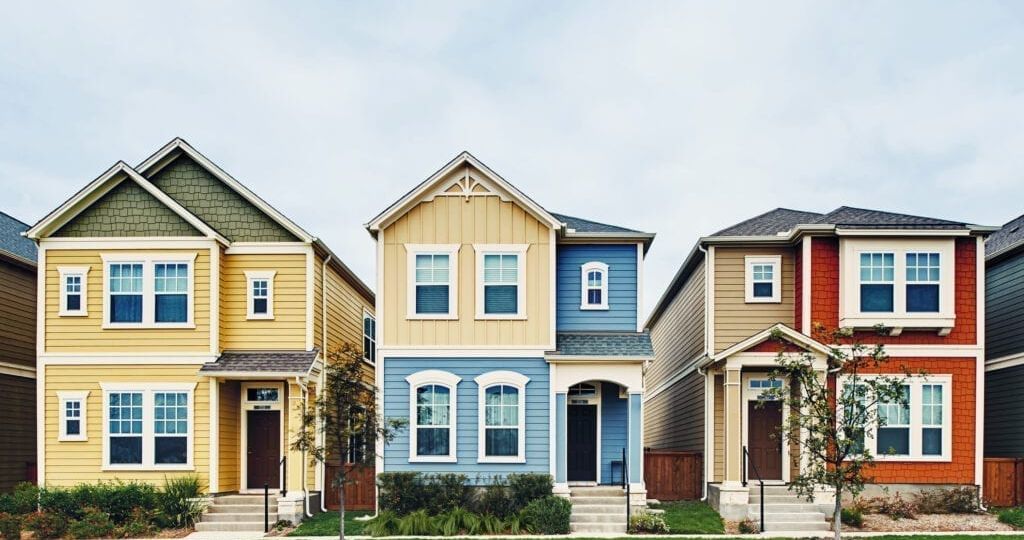
You may be wondering whether it’s a better idea to own your first home as a rental property or whether you should hold off and first buy a home you can live in. If you’ve already been planning on one-day diving into investment property but still plan to one day own the home you live in, then this is likely a recurring question.
Whether you’ve put an offer in on a property or still reviewing listings until you find the right one based on your goals, here are a few things you should know and consider which may help you make the right decision.
You Can Still Benefit From a First Time Home Buyers Programs
Many believe that when buying an investment property first, they miss out on the first-time home buyers programs available. This isn’t true. According to the CRA, “You are considered a first-time home buyer if, in the four-year period (prior to a home purchase), you did not occupy a home that you owned.” With that in mind, you don’t have to worry about forfeiting your ability to gain the tax advantages from being a first-time home buyer until you live in a home you own.
One thing to remember here: If you choose to buy a property and use it as a rental property and then move into it a few years later. You will have to wait four years after moving out until you can benefit from the first-time homebuyer programs offered by the government. This is where moving into the home you own to save rent money until you can buy another property to move into and then rent out the one you’re in gets a little frustrating come sale time. There is a way to avoid this, however, to benefit from a faster appreciation of your invested money.
Owning a Home Won’t Grow Your Wealth
Although we’ve been raised with the goal of buying a home to raise our family in, it’s not the best choice to make if you want to grow your wealth. Moving into your first home means taking on a mortgage (often times equal to or higher to your rent), property taxes, repairs, etc. all on your own. It might feel great to have your name on the deed, but it may actually depreciate your wealth over time.
Instead, buying a rental property and then renting it out at a profit, meaning that you can pay the mortgage of that property and have money left over, will quickly grow your passive income. If you are able to rent out your property with enough left over to save for repairs or emergencies (always do this) as well as pay the rent on the home you’re living in, then it’s pretty much smooth sailing. We have clients who have been able to rent out an income property, pay their expenses, and then pay minimal rent on the passive income earned. We’re talking about $100 rent each month and the rest of your monthly income earned from a salary or career becomes yours to save, invest elsewhere, and continue to grow your wealth.
Your Interest and Expenses Are Tax-Deductible
Unlike with a mortgage on your personal property in which you own and live, the interest on your rental or investment property is actually tax-deductible. When you purchase a home to live in later, you can then transfer those interest payments to your investment income to benefit from the deductions even more.
Come tax time each year, you can also deduct your current and capital expenses from your rental properties. These include advertising, insurance, interest and bank charges, repairs and maintenance, travel, utilities, and more. Some expenses are not included in your deductions so you should ensure you review Canada’s current-year tax deduction amounts from Canada Revenue Agency.
It Is Easier to Buy Your Personal Home Later
Banks and mortgage companies want to know that you’ll be able to make your monthly payments. If your current financial situation might lead you to a lower mortgage allowance, you may be eligible for a larger amount if it will be considered an income property. This is because, on top of your current income, this will increase upon your ownership and passive income. And, once you’ve gotten that first mortgage, you’re likely to be approved for a second one even faster or larger than the previous — in part because your wealth will quickly appreciate over time. So, if you are hoping for a larger, family home on the water as your dream home, don’t move into the small residential property you are eligible for now. Invest in a property as an income generator first and then move into your dream home a couple of years later. The Real Estate Group can help.
Interested in learning more about how The Real Estate Group can help you find or sell your home? Reach out for a conversation today.

